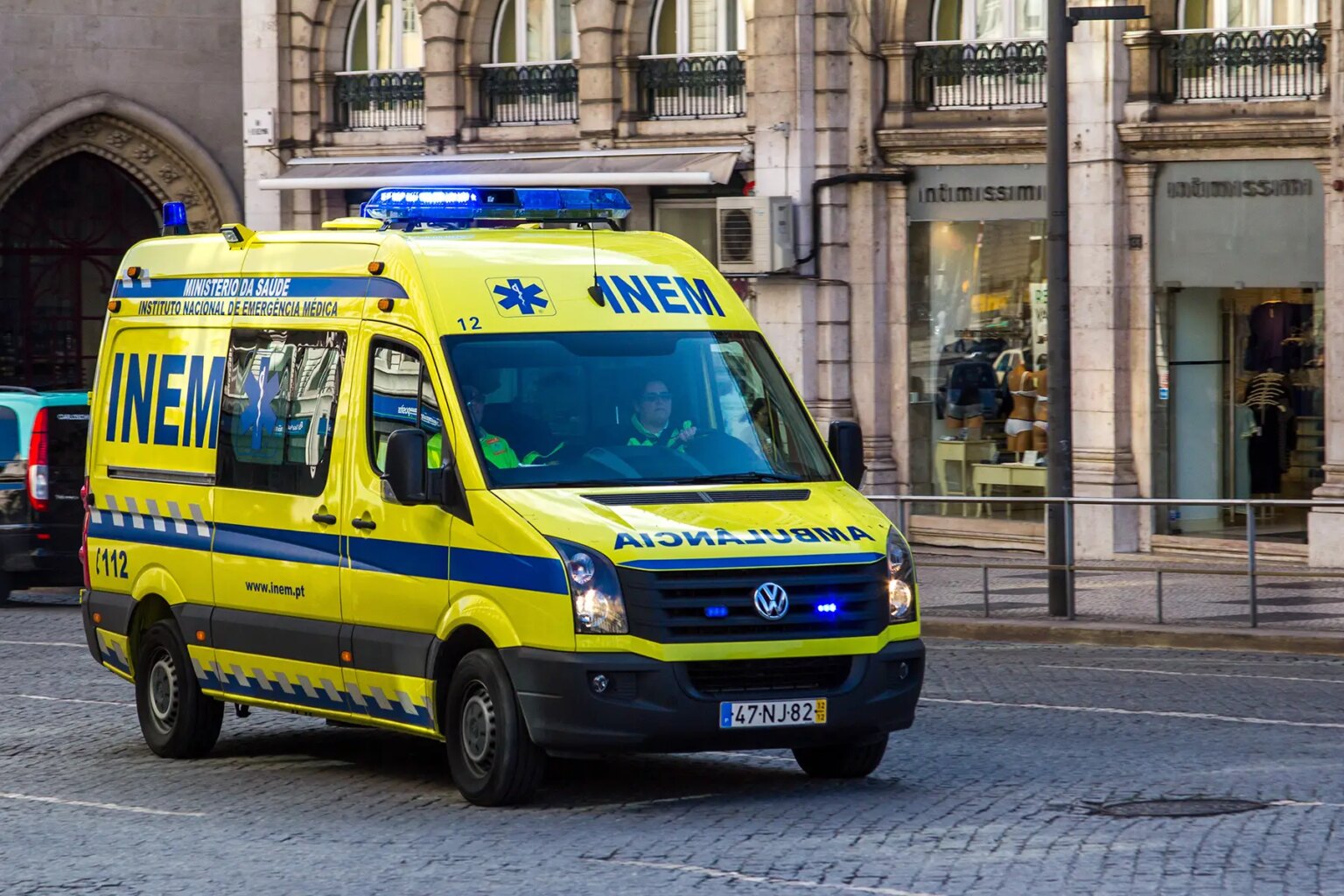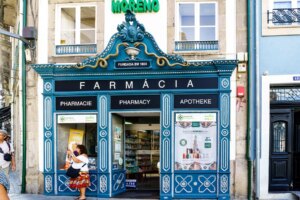Portugal is generally a safe country. It has a low crime rate, and violent crime is extremely rare. Still, if you need the police, fire department, or medical care, the emergency services are there when you need them.
| Emergency service | Number |
| General emergency line | 112 |
| Ambulance | 112 |
| Fire brigade | 112 |
| Police | 112 |
| Sea rescue | 214 401 919 |
| Missing Child Line | 116 000 |
| Suicide crisis line | 213 544 545 (landline) 912 802 669 or 963 524 660 (mobile phone) |
Besides the above, Portugal has a number of other emergency helplines you may not be familiar with:
- Main emergency number in Portugal
- Helplines for gender-based violence in Portugal
- Mental health and substance abuse helplines in Portugal
- Emergency number for road and traffic accidents in Portugal
- Who to call in a property or housing emergency
- How to reach the Portuguese animal services
- Help for foreign nationals in Portugal
- What to do in an emergency in Portugal
- Emergency terms and phrases in Portugal
- Useful resources
Main emergency number in Portugal
If you or someone else is in immediate danger, you can call 112 from any landline or mobile phone in Portugal. Calling 999 or 991 does not work; instead, call 112. The operator will divert you to the required service.
You should only use Portugal’s emergency number in genuine crises, such as if there is a serious threat to your health. Using these lines for non-urgent issues causes delays for callers who require immediate help.
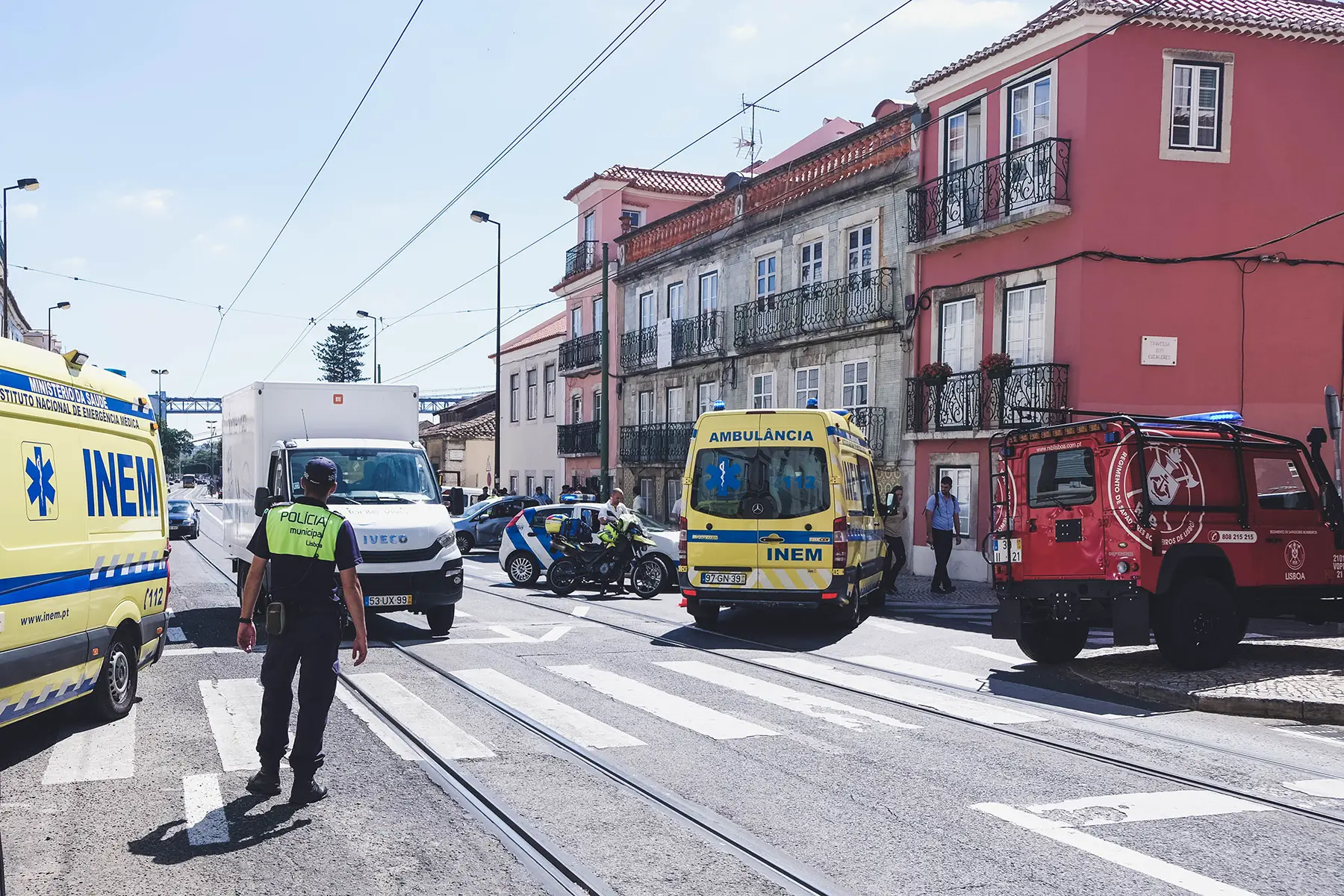
The Ministry of Internal Administration (Ministério da Administração Interna) is responsible for most rescue services, including those that respond to natural disasters. Meanwhile, the National Authority for Emergency and Civil Protection (Autoridade Nacional de Emergência e Proteção Civil – ANEPC) coordinates disaster response, civil protection, and emergency planning.
Portuguese ambulance and rescue services
In a medical emergency, call 112 for an ambulance. Regardless of your medical insurance status in Portugal, you can access emergency healthcare for free. For general healthcare advice, you can also call the SNS Health Line 24 at 808 24 24 24.
The following are some other useful numbers to jot down:
- Missing Child Line: 116 000
- Sea rescue: 214 401 919
- Poison Information Center: 800 250 250
- Cancer helpline: 213 619 542
- HIV/AIDS Anti-Discrimination Center: 910 347 006
- Portuguese Red Cross: 213 913 900
How to reach the firefighters in Portugal
Portuguese firefighters are primarily volunteer-based, but remain critical in frontline emergency response (e.g., fires, floods, accidents). You can contact them at 112; though, if you see a forest fire, call 117.
Emergency number for the police in Portugal
There are three main police organizations in Portugal:
- The Judicial Police (Policia Judiciária – PJ) – handles complex and high-level criminal investigations on a national scale, including terrorism, cybercrime, and money laundering.
- The National Republican Guard (Guarda Nacional Republicana – GNR) – responsible for policing in rural and suburban regions
- The Public Security Police (Policia de Segurança Pública – PSP) – conducts police work in larger cities
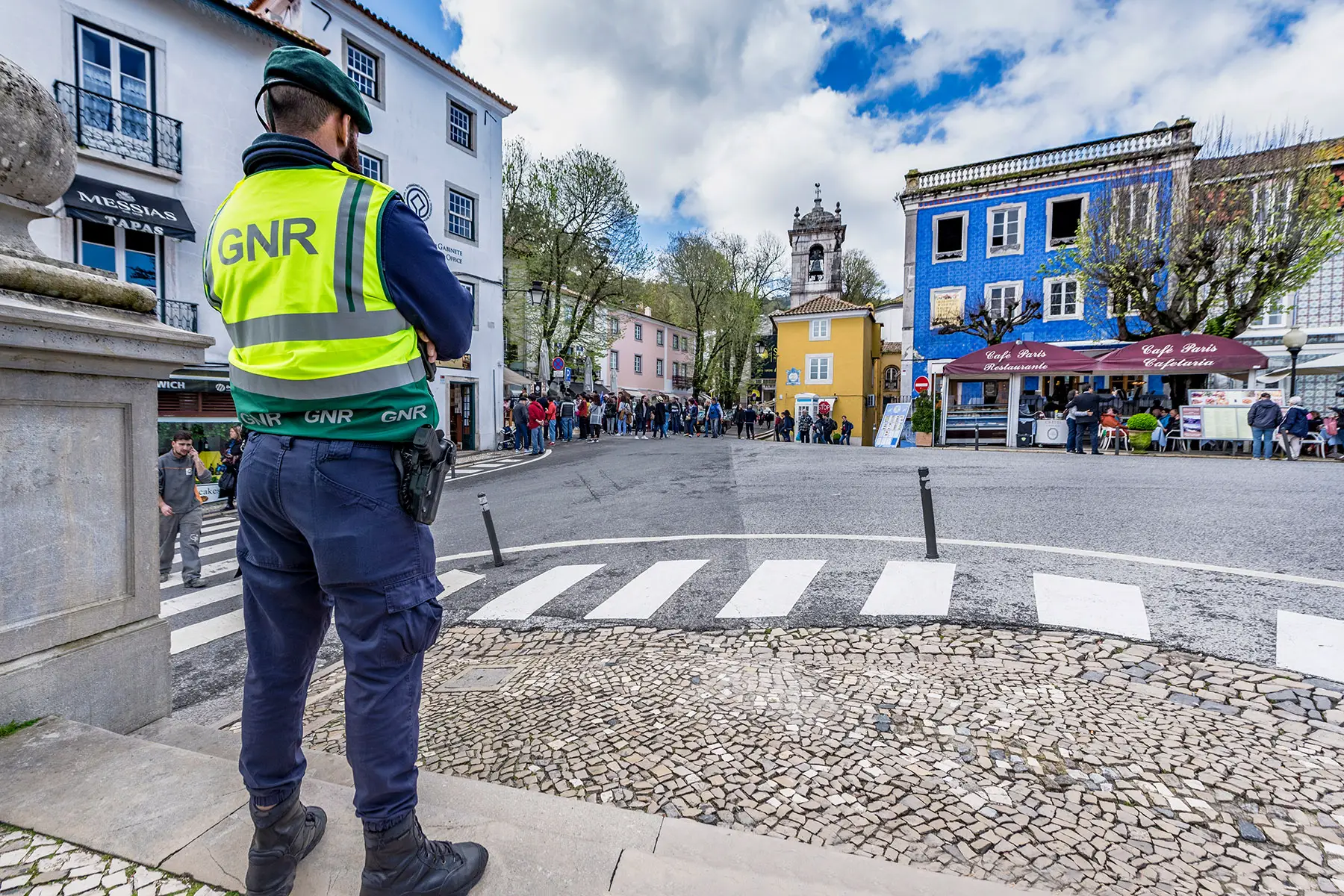
For urgent police assistance, call 112. For all non-emergencies (e.g., complaints, suggestions, or when you are lost), you can reach out to the GNR or the PSP:
- GNR SMS service for the hearing impaired: 961 010 200
- SOS Environment (GNR): 808 200 520
- SOS Transit (GNR): 808 201 855
Helplines for gender-based violence in Portugal
Help for domestic abuse in Portugal
Victims of domestic abuse and violence in Portugal can call a number of emergency services for assistance, support, and possible shelter. For example:
- SOS Child Line: 166 111
- Helpline Victim Support: 116 006
- Immigrant Support Line: 808 257 257 or 218 106 191
- National Domestic Violence Helpline: 800 202 148
If you know of or witness domestic violence, you can also report it to the police at 112.
How to call LGBTQ+ services in Portugal
Portugal is one of the most LGBTQ+ friendly countries in the world. Still, if you need help and support, you can reach out to Casa Qui at 917 617 618 (WhatsApp available). This organization offers psychological and legal support for LGBTQ+ youth, including those facing domestic violence.
Other places of note:
- Ex-Aequo Network: 968 781 841 (for people aged 16-30)
- Clubo Safo (for lesbians): 960 046 617
- ILGA Portugal: 218 873 918
- Opus Diversidades: 213 151 396
Mental health and substance abuse helplines in Portugal
Portuguese mental health services
If you’re struggling with mental health issues in Portugal, you’re generally recommended to consult your primary care doctor first. They can prescribe medication or refer you to a suitable specialist.

However, if you are in an immediate mental health crisis, you can reach out to one of several suicide crisis helplines. Many have limited opening hours, typically from 16:00 to 23:00. SOS Voz Amiga is one that’s open from 15:30 to 00:30. Their number is 213 544 545 (from a landline) or 912 802 669 or 963 524 660 (from a mobile phone).
Services that help with alcohol and drug abuse
When “just for funsies” is no longer fun, you can contact the following organizations:
- Alcoholics Anonymous
- Anti–Alcoholic Portuguese Society: 213 571 483 or 929 193 507
- Drug abuse helpline: 1414
- Narcotics Anonymous: 219 477 970
Emergency number for road and traffic accidents in Portugal
If you are involved in a traffic accident in Portugal, you should stop your car (preferably not obstructing traffic), turn on your hazard lights, and display your warning triangle. In the case of minor accidents with no casualties, swap phone numbers, addresses, and insurance details, and fill out a Declaração Amigável (Friendly Declaration) with the other party involved.
More serious collisions should involve the police (112). Driving off after a road accident is illegal in Portugal, so if the other party takes off, try to note down their number plate.
Who to call in a property or housing emergency
Lost or stolen property in Portugal
When you lose an item, you should first visit the relevant lost and found desk (e.g., at the train station). After that, you can contact the police at 218 444 530. If the item is an official document, make sure to also contact the relevant authorities. For example, lost passports must be reported to the embassy or consulate. And if you’ve lost your credit or debit card, you should contact your bank to have the card frozen.

Utility and telecom services in Portugal
Electricity and water failures are fairly rare in Portugal. However, when it happens, you can call the following emergency numbers from anywhere in the country:
- Water issues – call Águas de Portugal at 800, or 800 201 600 (for burst pipes) or 800 222 425 (for water cuts)
- Gas leaks – call your supplier: Galp Energia (800 508 112) or Medigás (808 201 150)
- Electricity issues – call Energias de Portugal at 800 506 506
How to call homelessness services in Portugal
Portugal has several organizations and services that offer support to people facing housing instability or in need of emergency shelter. For example, you can contact the National Social Emergency Line at 144. You can also reach out to:
- CASA Homeless Support Center: 217 269 286
- GAT Housing First: 911 098 545
- Lisbon Housing First: 213 620 192
People requiring food assistance can get in touch with the local Food Bank (Banco Alimentar contra a Fome – BACF).
How to reach the Portuguese animal services
If you find someone’s pet, you should take it to a veterinarian. They can see if the animal has any chip or identification and search the databases if so.
You can report animal abuse to the GNR SEPNA – Environmental Protection Service at 808 200 520. In urban areas, you can also contact the PSP. If the abuse is ongoing or urgent, you can call 112.
Help for foreign nationals in Portugal
Portugal is a popular tourist destination, and major tourist areas have their own specialized Tourist Police unit (Polícia de Turismo) operated by the PSP. Their officers are usually based at Tourist Support Offices or mobile police stations near airports, train stations, and central plazas. While there’s no separate tourist helpline, you can reach them by calling the local PSP station. Of course, when you’ve an emergency, you must call 112.
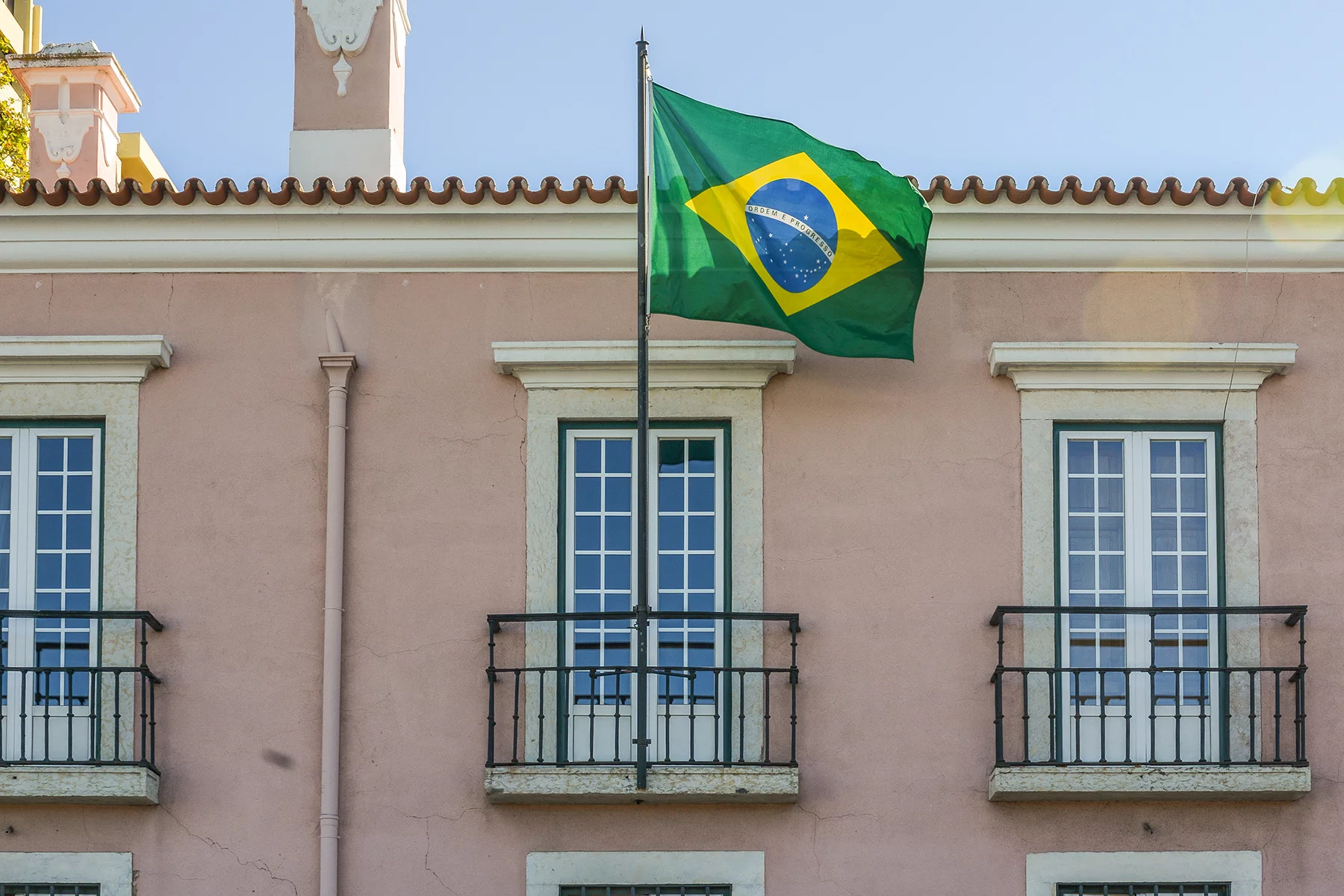
If you need consular or diplomatic help, most embassies and consulates are located in the more central or upscale neighborhoods of Lisbon. For a complete list of embassies, consult EmbassyPages. You can also visit the website of the Portuguese Ministry of Foreign Affairs.
What to do in an emergency in Portugal
When you call the emergency services, the operator will customarily answer in Portuguese. Most speak some English but are unlikely to be native speakers; remain calm and speak clearly when asking for help. When calling 112 or any of the other emergency numbers in Portugal, make sure to clearly state:
- Your name
- The location where help is necessary
- The situation, and whether it’s still happening
- How many people require help
- Whether there are weapons or dangerous substances involved
Other tips and things to keep in mind:
- Don’t forget the security code for your parking garage or apartment building
- Never hang up until you are told to do so
- If you have medical problems or regularly take prescription drugs, know how to say their names in Portuguese
- If you have children, know their exact ages and weight in case you need to call an anti-poison center or administer medication
- If drugs were involved, make sure to inform them what was taken, and, if possible, give them the rest of the stash consumed
Emergency terms and phrases in Portugal
Some useful Portuguese phrases and vocabulary to learn are:
| English | Portuguese |
| Help! | Ajuda! |
| Help me | Me ajude |
| I can’t breathe | Não consigo respirar |
| (Severely) allergic | (Gravemente) alérgico |
| Accident | Acidente |
| Fire | Fogo |
| Murder | Assassinato |
| Emergency | Emergência |
| Ambulance | Ambulância |
| Doctor | Doutor |
| Police | Polícia |
| Extremely ill | Extremamente doente |
| Call 112 | Ligue para um um dois |
| I want a lawyer | Eu quero um advogado |
| I’m innocent | Eu sou inocente |
Useful resources
- Ministry of Internal Administration – official government website of the ministry responsible for most rescue services, including during natural disasters
- Ministry of Foreign Affairs – official government website with more information on foreign embassies in Portugal
